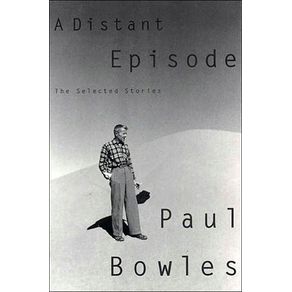Movement and dark exotica are the hallmarks of any Paul Bowles story. In the title piece a linguist bums his way down on a bus to "the warm country" in what may well be Morocco, returning to a town--and a friend--he has not seen in 10 years. He learns that the friend has died and, overcome by a perverse and almost exalted carelessness, makes a curious proposition to the qaouaji who serves him tea. The strange becomes the sinister; the lonely becomes a hallucinatory horror. When the unspeakable finally comes to pass (the dogs, the guns, the evil men), it's a relief. The characters in these stories are shaped and fated by place. "The pleasure of writing stories, as opposed to novels," Bowles observes in the preface, "lies in the freedom to allow protagonists to invent their own personalities as they emerge from the landscape." The collection that ensues, chosen by the author and written over a 40-year period, reflects this creed. And the improvisational feel of the works comes precisely from the power place is accorded as the dominant force on characters and their actions.



